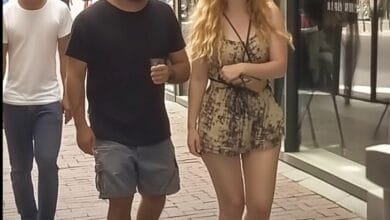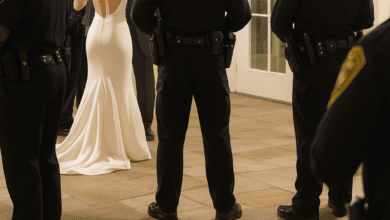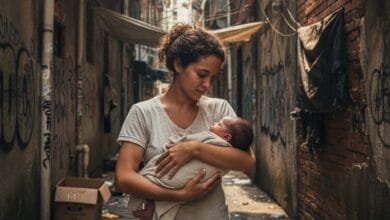“Everyone Thinks You’re My Grandma! Why Did You Bring Me into This World?”

Marci, a thirteen-year-old teenager, shouted angrily at his mother, Ágnes:
— YOU’RE AN OLD HAG! EVERYONE THINKS YOU’RE MY GRANDMA!
It was a hot Saturday. At the “Sunshine Corner” café on the outskirts of town, the air was filled with the smell of freshly baked pastries and the lively chatter of teenagers. Marci chatted with his friends, feeling free. There, he could just be “himself,” not “the boy with the old mother.” The age gap between Ágnes and the other parents embarrassed him. Her gray hair, the wrinkles around her eyes when she smiled, and her slower movements weighed heavily on his self-esteem.
Sensing her son drifting away, Ágnes tried to reconnect. Knowing how much he loved superhero movies, she called and invited him to the cinema. When he didn’t answer, she decided to look for him at the café.
As she entered, she was met with cruel jokes from Marci’s friends:
— Look, your grandma came to pick you up!
Humiliated, Marci exploded:
— Why did you come here? You’re embarrassing me!
Ágnes tried to hide her pain and kindly invited him to the cinema. But Marci harshly rejected her, shouting at her to leave. Hurt, Ágnes left the place in silence.
At home, she prepared Marci’s favorite dish, trying to preserve some connection. When he got home, he refused dinner, and when confronted, he lashed out with even more cruelty:
— EVERYONE THINKS YOU’RE MY GRANDMA! I’M ASHAMED OF YOU! WHY DID YOU BRING ME INTO THIS WORLD?
Ágnes could barely respond. She felt unwell and collapsed in the hallway. Startled, Marci ran out of the house. When he returned, the neighbor greeted him:
— Your mother had a heart attack. She’s in the hospital. BECAUSE OF YOU!
Marci reacted with anger, saying it wasn’t his fault. The neighbor then handed him an envelope Ágnes had left. Inside, Marci discovered the truth: he was adopted. Ágnes had mortgaged their home to pay for a life-saving heart surgery when he was a baby. And she had chosen to love him, even without blood ties.
Devastated, Marci rushed to the hospital. Seeing his mother in the ICU, he held her hand tightly:
— Mom… please forgive me… I was cruel. Please be okay. I promise I’ll change.
Ágnes’s recovery was long, but Marci was there every day. He cooked, helped around the house, walked with her. And at night, they watched movies together.
Over time, shame gave way to respect and admiration. Marci was proud of the woman who had saved and chosen him as her son.
Months later, while passing by the café, they heard a joke from Ákos. But Marci responded firmly:
— Yes, this is my mother. And I love her.
Touched, Ágnes said:
— I’m proud of you, my son.
At home, Marci asked:
— Mom… who were my biological parents?
With affection, Ágnes replied that she knew little. But she assured him:
— I’ll be by your side if you ever want to explore that part of your story. But remember: love is what makes a family.
At school, Marci presented a project about his story. Adoption papers, photos, drawings. And his final statement:
— My mother chose me. And that’s worth more than any genealogy.
The class was moved. That day, Marci understood: his story wasn’t a reason for shame. It was proof of love, sacrifice… and forgiveness.
🧾 Compensation and Damages – The Right to Reparation
Did you know you may be entitled to compensation for moral damages, accidents, medical errors, undue charges, or canceled flights? Many people suffer injustices or abuse and don’t know they may be financially compensated for it.
Companies and institutions are responsible for the services they provide. When something goes wrong and the consumer is harmed, the law guarantees the right to compensation. The same applies to victims of accidents or situations that cause physical or emotional suffering.
Be aware: saving evidence, filing reports, and consulting a lawyer can be the first step toward justice. Compensation doesn’t erase suffering, but it represents recognition, relief, and prevention of further abuse.





